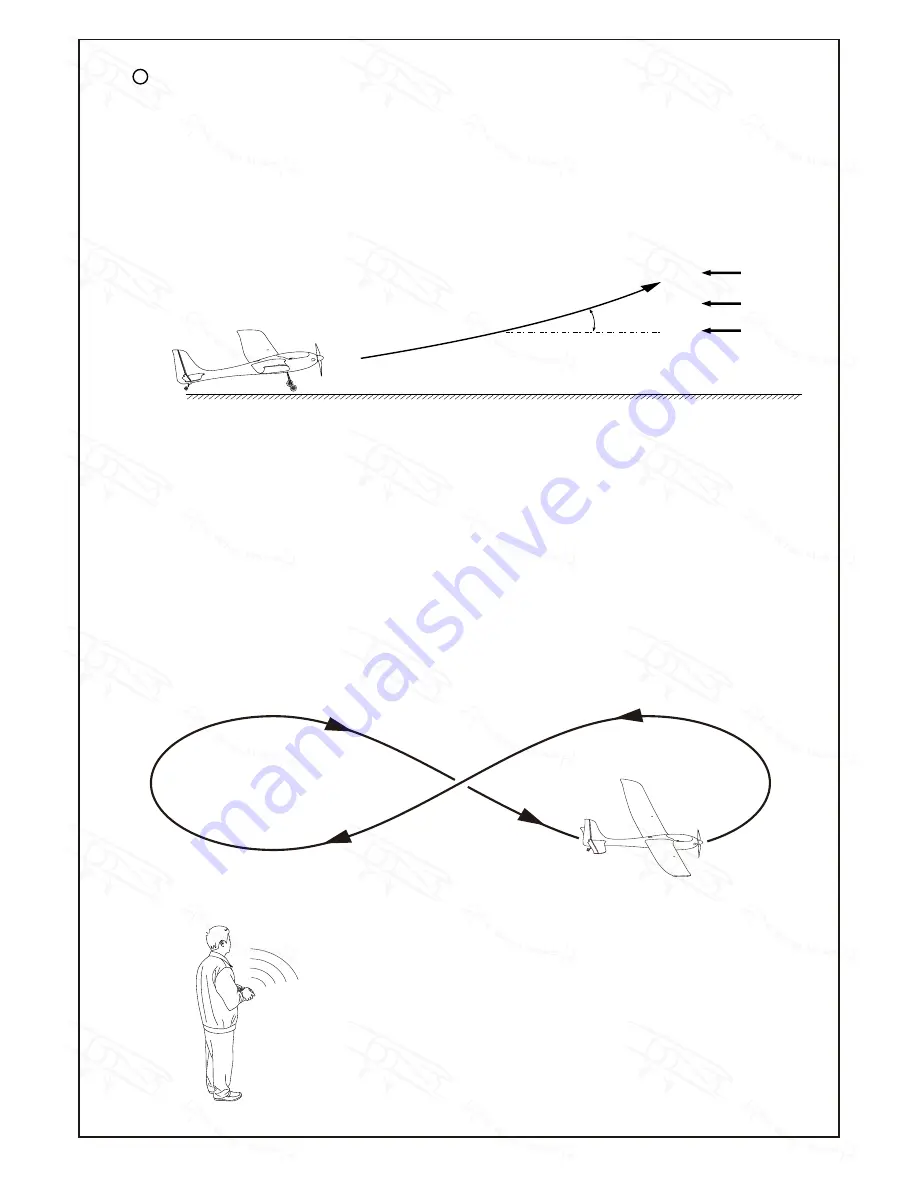
P.14
3
Flying
Now it is time to take off. Don't fly if the wind is more than 5 miles per hour. Wind is good for take off and landing, but if it is
too windy, it will be very difficult to control the plane. It is much better to wait for calm weather than crashing your beautiful
plane. Check that there is no one at the field. If you have someone with you at the flying field, ask them to stay behind you.
Check the wind direction. Taxi the plane against the wind direction. You can take off from left to right. Taking off and landing
against the wind is the rule of thumb. Advance the throttle gradually and see the plane increase in taxiing speed. By the time
you reach full throttle, the plane should be lifted off the ground. If the plane is not taking off, pull back the elevator slightly and
the plane should lift off. Maintain a 15° climb and turn left before you reach the end of the field. Turn big circle, the plane will
lose air speed when turning small circle and will drop the nose, pull up elevator a bit to bring back the climb angle.
When you reach 10 storey height, you can throttle back to about half throttle and try to fly in a level course. Try to do the figure
8 turn as you have practiced on the ground. Try to do big circle turns, and when you see the plane drops during turning, pull
back elevator slightly and throttle up a bit to maintain the plane at the same level. Practice the figure 8 turn for the next 5
minutes. When you are OK with the figure 8 turn, try to do the counter clockwise turn. Always try to fly the plane with the
fuselage in a level manner. If you find the plane always wants to dive, pull the trimming tab towards your body to trim up the
elevator. If you find the plane always wants to climb, push the trimming tab away from your body to trim down the elevator. The
goal is to fine trim the elevator so you can have a level flight at about half throttle. With the elevator properly trimmed, you will
find that when you throttle up, the plane will go up, and when you throttle down, the plane will descend. When you get the plane
under control, it is time for landing.
Wind
15°
GM080PO30211403














































